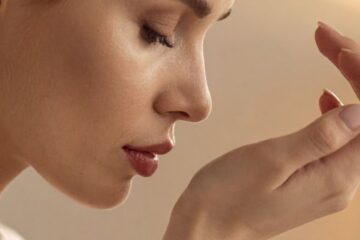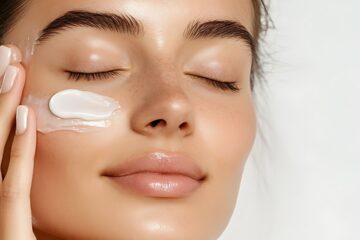Generation Alpha, or children born after 2010, is the first generation growing up entirely in a digital world where influencers and social media play a massive role in shaping their everyday choices. Interestingly, this influence isn’t limited to entertainment – skincare and consumer habits of these children are also changing under the impact of new trends.
From an early age, children begin showing interest in cosmetics and start choosing products that are popular among their peers.
🔹The Changing Perception of Skincare🔹
Many parents notice that their Generation Alpha children are interested in skincare much earlier than their peers from previous generations. For some parents, this is a positive phenomenon – increased awareness of sun protection and personal hygiene can bring long-term health benefits. Already, children are more frequently reaching for products like moisturizers, body lotions, and UV protection creams, which reflects growing awareness of skin care.
On the other hand, more and more children are becoming interested in luxury cosmetics or even anti-aging products, which raises some concerns. Young consumers not only want to care for their skin but also keep up with trends they see on social media. Often, these are products promoted by influencers and celebrities, whose impact on young audiences is significant.
🔹The “Sephora Kids” Phenomenon and Consumer Challenges🔹
The term “Sephora Kids” is increasingly used to describe the youngest consumers who are not only interested in skincare but also desire branded cosmetics. They often observe which products are popular among their peers and what is being promoted by influencers. This phenomenon brings mixed reactions – while early skincare awareness has its benefits, it can also lead to consumer pressure, especially in groups with varying financial capabilities.
Parents may feel pressure from their children, who want products considered “better” or “trendier.” This leads to questions about what a healthy approach to cosmetics should look like at a young age and what criteria should guide product selection.
🔹The Safety of Cosmetic Ingredients for Young Skin🔹
As cosmetics gain popularity among children, more parents are paying attention to the safety and suitability of the ingredients in these products. Young, delicate skin requires cosmetics specifically tailored to its needs, and some ingredients used in adult products may be too strong or irritating for children.
This presents new challenges for cosmetic brands, which must meet the growing expectations of parents. Increasing emphasis is placed on ingredient transparency and clinical testing to ensure product safety for young skin.
🔹The Influence of Social Media and Cosmetic Trends🔹
Social media is playing an increasingly important role in shaping children’s skincare habits. At a young age, children follow influencer accounts that promote not only basic cosmetics but also luxury products, often targeted at adults. As a result, some children begin to view skincare through the lens of trends and popularity online, which can lead to overconsumption and a desire for cosmetics that don’t necessarily meet their needs.
Young consumers, much like adults, are paying more attention to the brand and market position of products, forcing their parents to make purchasing decisions under peer pressure and social media influence. A responsible approach to choosing cosmetics for children, taking into account their specific skin needs, thus becomes a challenge for parents.
🔹The Role of Education in Responsible Skincare for Children🔹
Not only parents but also children themselves should be aware of how to properly care for their skin. In this context, education plays a crucial role – both in the form of social campaigns and brand initiatives that can support parents in building healthy skincare habits for their children.
Cosmetic brands are increasingly focusing on educational programs aimed at parents and children, with the goal of raising awareness about healthy skincare habits. Properly chosen products and regular skincare can significantly improve skin condition and have long-term health benefits.
🔹Conclusion🔹
The changing skincare habits in Generation Alpha represent a new reality that both parents and the cosmetics industry must address. On one hand, increased awareness of skincare at a young age can bring long-term health benefits. On the other hand, the rise in consumption and interest in luxury cosmetics, promoted by social media, raises questions about responsibility and maintaining a healthy balance. The key to success will be further education and the development of products that cater to children’s specific needs, ensuring their safety and effectiveness in everyday skincare.




